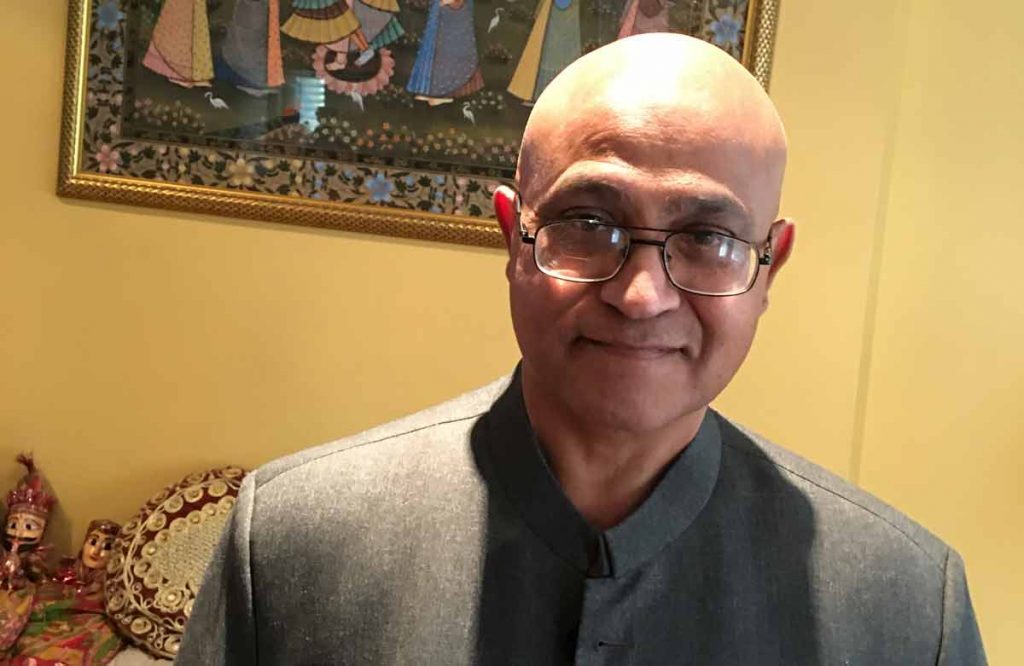The term ‘doctrine’ was used by Profs Randy Persaud and Andre Brandli (multiple dates) without a clear and appropriate definition that is easily understood by ordinary Guyanese. It is a complex, complicated, concept used in political science that needs a simple explanation for the unsophisticated reader who may not have studied the subject or au fait about the term ‘doctrine’.
It is generally, but not exclusively, used to describe the ‘foreign’ policy of a President or ruler in the conduct of international affairs (relations). It is also used in military affairs. Doctrine in politics simply means the principle of a government or its leader mainly in foreign affairs to promote or protect the interests of his nation. It can also be used to describe a leader’s domestic policy but was (is) hardly used by political scientists or other analysts for domestic affairs. Dr Randy Persaud used it to describe a domestic policy of a very prominent local leader — what he characterized or explained as the ‘non-racialized’ or ‘inclusive politics’ of Bharrat Jagdeo. I don’t recall ever reading the term to describe domestic leadership (not even great American or Indian or British or Canadian leaders) or the foreign policy of a leader south of USA although one can make a case for a Jagan Doctrine (New Global Human Order that didn’t get traction and publication of a book) or a Jagdeo Doctrine with reference to climate change (Champion of the Earth Low Carbon Carbon Strategy). The Jagan’s Doctrine was also non-racialized inclusive policy as has been the policy of the PPP since it’s founding in 1950. Dr Persaud stated that the PPP should engage in more outreach to Afro-Guyanese.
Contrary to what Prof Brandli may imply a leader does not have to publish articles under his name in order for the term to the attached to or affiliated with his name. It is the policy of the leader that creates the doctrine. Thus, one will have the Obama Doctrine, Bush (II) Doctrine, Bush (I) Doctrine, Kennedy Doctrine, Reagan Doctrine, Churchill Doctrine, George Washington Doctrine, Margaret Thatcher Doctrine, etc. The focus of doctrines in political science are of American and British leaders. The names of Jagan, Burnham, Williams, Manley, and a few other West Indians did pop up in courses on Caribbean politics but not to any doctrine affiliated to each. While there may be a doctrine affiliated to Bharrat Jagdeo, he has not been doctrinaire— meaning slavish to any one policy or ideology. Although educated in Moscow, since 2015 following the removal of the Ramotar administration, Jagdeo has been pragmatic particularly so since Maduro reasserted claim to Guyana’s legitimate territory. Jagdeo recognizes the importance of doctrines of American leaders.
Academics generally pay attention to the doctrine of American Presidents — their foreign policy as USA has dominated the international politics of the globe for much of the 1900s till now. When American Presidents sneezed the rest of the world, the Americas and Caribbean in particular, catches cold. Their doctrine is significant and foreign leaders, especially from third world countries, pay heed to these doctrines.
One of the most well-known usage of the term is the description of the foreign policy of President Monroe (of US, 1817-25) — the so called Monroe Doctrine during his tenure and after and till now — a reference to involvement of any external power in the political affairs of the Americas and the Caribbean, considered America’s backyard, will be viewed as a hostile act and America will respond accordingly. That policy has been consistently enforced by all American Presidents till this day. Governments that closely engaged with external powers considered unfriendly with USA were removed from office in America’s backyard going back the early 1800s. The list is long and included the PPP governments of 1953 and 1964 during the height of the Cold War. It is best not to mess with the Americans or to engage in alliances or fraternal relationships with external powers considered as hostile to USA. That would be a violation of the Monroe Doctrine.
On a separate note, there was a grammatical error in usage of ‘rational’ in retort penned by Prof Brandli (Jan 23). He asked in question 7, “Is there a rational formulated in the Jagdeo Doctrine”. It should be ‘rationale’. Rational and or rationale refers to reason. Rational was used as a verb. The noun rationale was needed in the question.
